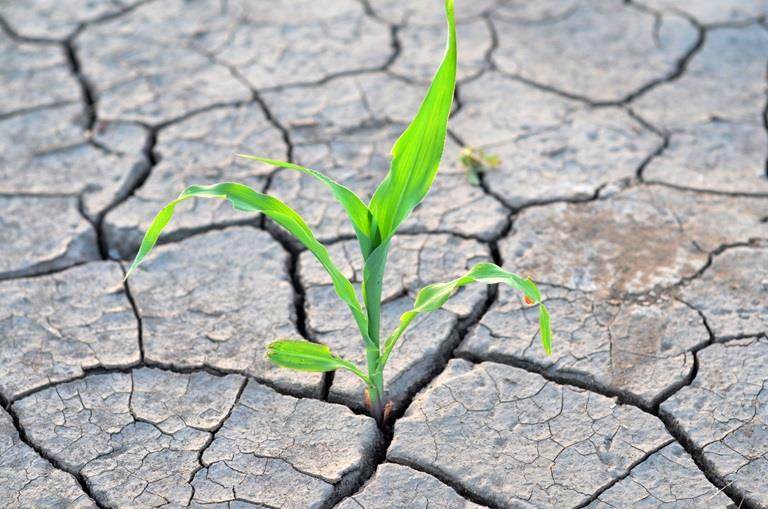Mitigating abiotic stress in crops
Making plants more resilient to extreme environmental conditions is a growing area of research and development. Our new paper explores the possibilities and challenges.
Abiotic stress in crops – ie damage caused by environmental factors such as drought, waterlogging, salinity, pH, and temperature - has always been a problem for farmers in extreme climates. As climate change brings increasingly erratic weather, the impact of abiotic stresses is worsening everywhere, even in regions with historically mild climates. Some estimates suggest abiotic stresses already cause over $170bn (£138bn) in crop losses per annum.
Abiotic stresses can either directly damage the plant, or trigger biological responses that can be detrimental to plant health and yield. By modifying how plants react to these stresses, we can make more resilient plants, with better yields, even as climate conditions worsen.

Four strategies for responding to abiotic stress
In our new paper, Mitigating Abiotic Stress to Create Resilient Crops, we look at four strategies for dealing with abiotic stress: priming, biostimulants, breeding, and farming practices.
Priming involves getting the seed beyond its early germination phase – where it is most vulnerable to environmental stresses – before it is planted. This improves overall germination, even in stressed conditions, and prevents seed dormancy. Tailored priming can also stimulate defence mechanisms such as antioxidants and osmoprotectants, that make it more resilient to stresses.
Biostimulants are chemicals or microorganisms that can be applied to seeds, plants, or soils, to stimulate natural processes in the plant. For example, some biostimulants boost antioxidant production, which enables plants to mop up excess reactive oxygen species (ROS) - molecules which are often overproduced in stressed plants and can damage plant cells. Antioxidant-boosting biostimulants have improved cocoa yields by over 35%.
Breeding involves creating plants that have genetic traits adapted to stressful conditions, for example those which naturally produce more antioxidants or growth hormones. Conventionally this involves the long process of cross-breeding plants with desirable traits, but modern measurement lets us detect molecular or genetic markers associated with desirable traits for selective breeding programmes. Direct gene editing could play a role in future, but for now is limited to lab research.
Finally, good farming practices will be increasingly needed. These include reducing stressful conditions, for example by planting trees to create shade, efficient water management, and the use of sensors to enable data driven interventions against abiotic stress.
An important and exciting area of research
Whilst there is growing innovation around abiotic stress solutions, we are only just scratching the surface of what’s possible. The area remains challenging with a wide variety of research avenues still to explore in all the areas discussed above.
Our new paper explores some of the approaches and solutions being developed in all four of these areas, and discusses the broad challenges that abiotic stress researchers face, and how we might overcome them to boost this exciting area of innovation.
Download the full report.Mitigating Abiotic Stress to Create Resilient Crops


Abiotic stress relief
If you would like more information about this new technology, contact a member of our team.
